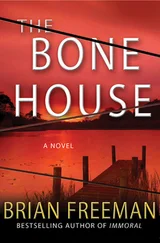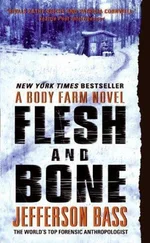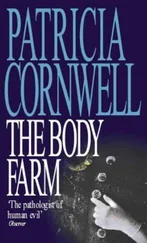CHAPTER 45
Satterfield
SATTERFIELD REACHED UP TOscratch an itch on his head, and the dial of his watch swam past his face in a smear of luminescence. Beneath the cargo hatch, the space was low and pitch black, and it smelled faintly of death. Like a coffin, he thought. A family-sized coffin. On wheels. Should he put them in here, once he was finished with them? No. Leave them out—on display—for all the world to see. He raised his left hand, the luminous dial floating upward a few more inches in the blackness, until his fingers brushed the lid, eighteen inches above his face.
It had been easy— so easy, he thought—but then, he’d had a big advantage: He had known they’d be coming, but they hadn’t known he knew. Fools. They should have known better. They should have done better.
The pizza guy, on the other hand—no way that poor bastard could have known better. A quick, lethal snap of the neck, administered by someone who ordered pizza once or twice a week, and always tipped five bucks? No way to see that coming. Swapping clothes, slapping on the fake beard, stenciling the tats on the arms, tightening the trip wire on his way out the front door, tripping the timers on the lights and TV and the recording of the woman’s screams—all that had taken less than ten minutes. Practice makes perfect, he praised himself.
Driving away from the house in the kid’s piece-of-shit Escort, he’d checked the rearview mirror repeatedly, smiling every time he looked and found it empty. Half an hour after answering his front door and beckoning the unsuspecting pizza guy inside, Satterfield had parked the Escort near the stadium, jimmied the latch on Brockton’s cargo hatch, and clambered in, pulling the hatch closed above him.
Now—after three hours of patiently lying in wait in the pitch-black bed of Brockton’s truck—Satterfield was ready to emerge from the coffinlike blackness; ready to rise from the dead and rejoin the land of the living. Ready to take Brockton and his family out of it.
How long should he wait? Part of him wanted to draw it out. The longer he waited, the more times and more ways he could envision it, savor it, play out in his mind the infinite permutations that were still possible for now, before the fact. Once it was done, only one version would remain in his head: the real version—one finite actuality, which would sweep away all the manifold and intricate and pleasant hypotheticals.
But waiting increased the chances that something might miscarry. Satterfield had bought time—hours, at least; possibly even days—with the explosion and the decoy corpse, but the longer he waited, the greater the risk that the police would unravel his ruse.
He ran a thumbnail beneath the hinge of his jaw and scraped at the edge of the rubber cement. Once he’d pried away a bit of the glue-matted hair, he tugged off the beard and flicked it into the corner of the pickup’s bed. The insulated pizza bag lay beside him, and Satterfield slowly opened the Velcro straps, the ripping-apart almost deafening in the close darkness, and then opened the flap. With his fingertips, he took inventory of the contents once more, though he already knew the items by heart and by touch: the four-cell Mag-Lite, blindingly bright and heavy as a club; the straight razor; a small, orange ball of baling twine; the twelve-inch zip ties; the flattened roll of duct tape; and a small pair of pruning shears. The 9-mm Glock was already out of the bag, tucked into his waistband.
SATTERFIELD’S EYELIDS BLOOMED RED-ORANGE,crisscrossed by a spiderweb of dark veins, when he clicked the switch and the Mag-Lite blazed to life. Squinting against the glare, he propped the flashlight against the truck’s wheel well and reached overhead for the long, thin rods that held the cargo hatch closed. Gripping each rod at its midpoint, he pulled downward, bending them both enough to free their ends and unlock the cargo hatch. He pushed gently, and the hatch pivoted upward, opening like a vast maw to disgorge Satterfield. To unleash him upon them.
He lay still and listened before moving. A few faint tickings from the engine of the truck and from the Camry parked beside it. The dull whir of the furnace blower. The gurgle of water draining from a sink. The murmur of a voice—indistinct words, but distinctly Brockton’s voice—filtering down through the joists and the flooring above the garage.
Moving fluidly and noiselessly, he rolled onto his side and curled his legs to his chest—coiling—then pivoted into a crouch and eased over the tailgate. By the light of the flashlight, still propped against the wheel well, he sorted his gear, tucking the razor and the pruning shears into his right hip pocket, the coil of baling twine into his right front pocket, the zip ties into his left front pocket, and the fat, flattened roll of duct tape into his left hip pocket.
Once the items were stowed within easy reach, he picked up the flashlight and started around the end of the truck, heading for the front of the garage. Then, on an impulse, he leaned into the bed of the truck once more to retrieve the Domino’s cap and the empty insulated bag. Tucking the bag under his left arm, he donned the cap, twisting and tilting it slightly— a jaunty angle, he thought.
Metal edges and handles glinted as he played the flashlight across the garage’s back wall, where tools were neatly arrayed on pegboards, one on either side of the door that led into the basement. Household tools occupied the pegboard to the left of the door: a Dustbuster, three sizes of pipe wrenches, an assortment of pliers, a set of screwdrivers, rolls of electrical tape, coils of insulated wire. Woodworking tools and lawn-care implements filled the other side: saws, hammers, clamps, planes, chisels, pruning shears, a hatchet, an ax, a sledgehammer, splitting wedges. Christ, Satterfield thought, the fucker’s a one-man Home Depot . He played the flashlight along the knee-high shelf beneath the workbench lining the wall, the beam lingering on a belt sander, a circular saw, and a chain saw. Hell, if he’d known there’d be such a wealth of implements to choose from, he’d have brought fewer things with him. His hands were already full, and he didn’t want to deviate from his initial plan, but he made a mental note to return to the garage in a few hours and pick a few choice items to liven things up, to stave off boredom.
He checked the wall beside the door that led into the house. There was a switch plate with three light switches, plus a doorbell-style button beneath it—the garage-door opener, probably. No keypad, so no security alarm, which he already knew from his scouting trip a few days before, when he’d “fixed” the telephone line.
The basement door was metal, with a dead bolt as well as a lock in the knob. Switching off the flashlight, Satterfield tried the knob. It turned, and when he pushed lightly, the door opened a crack. Idiots .
The large room inside the door—a basement den—was faintly lit by the blue clock of a VCR. Beyond, a hallway bisected the far half of the basement, leading, he recalled, to a bathroom, the kid’s bedroom, and a spare bedroom jammed with junk. Easing down the dark hall, he found all three doors ajar, all three rooms empty. Retracing his steps, he returned to the stairwell and started up, testing each step for any hint of a squeak before committing his full weight to it.
A line of golden light showed beneath the door at the top of the stairs, the sound of voices mingling with the clink of cutlery on ceramic. “Jeff, mind your manners,” he heard the woman say. “Leave a little for the rest of us.”
“Sorry, Mom.”
He conjured up his mental picture of the layout. The door from the basement opened directly across from an exterior door—a sliding-glass door—that led to a patio and a garden in back of the house. To the right of the stairwell was the dining room; to his left, the kitchen. Judging by the direction of the sounds, they were eating in the kitchen.
Читать дальше











